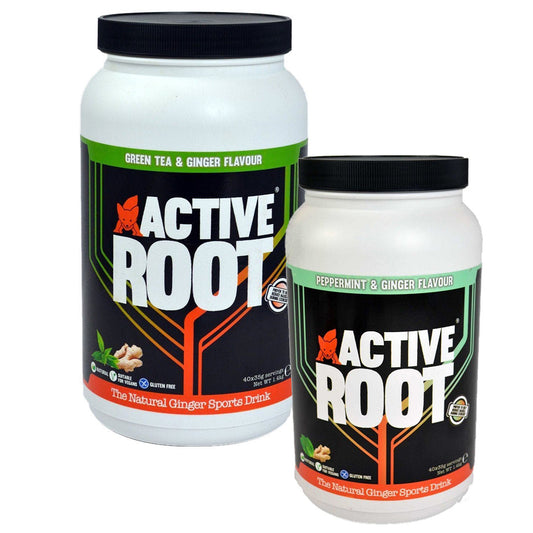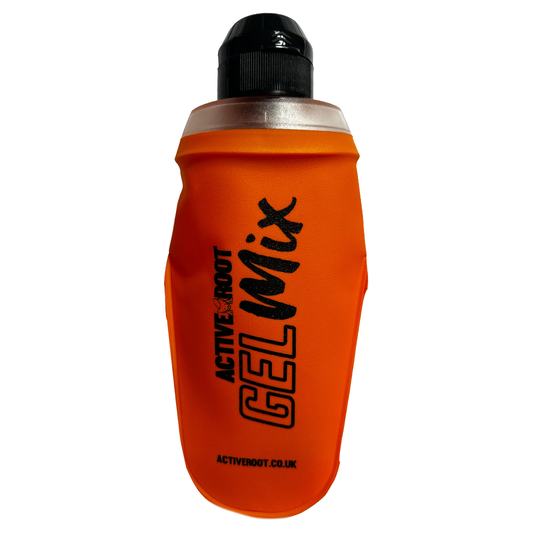Active Root Ambasador and Triathlete Kirsty talks about the effects endurance sport can have upon mental health and her own experiences whilst training for triathlon.
Walking the fine line
With there being a lot of talk in the media recently about sport and mental health I thought I would add my thoughts on the topic.
You may be asking what qualifies me to talk about this. Is it because I am a Psychology lecturer and did my master's thesis on goal setting and depression? No. I don't think that even close to qualifying me. Is it because I am a triathlete who has experienced the tremendous highs and hideous lows of the sport? Hmm, getting closer. Is it because I have used triathlon training as way to get me through some of the hardest times in my life and have experienced both the beneficial and detrimental effect of this? Nearly there. But above all, is it because, like so many others, I use training on a daily basis to help me reduce the stress of daily life and remain a functioning human being. Ding, Ding, Ding - Bingo!!!!!!!
This is the fine line we walk between sport as a means to maintain mental health and sport as a contributor to mental ill health. There is no doubt that there are health benefits to regular exercise - both physical and mental. There is a wealth of evidence of the therapeutic effect of exercise for people experiencing anxiety and depression. There is even evidence to suggest that clear goal setting and some amount of competition is good to keep a clear and active mind. But when do the scales tip? When does a healthy hobby become a detrimental obsession?
My years of studying and teaching psychology have not provided the answer and made me believe that there isn't one correct answer here. Everyone has their own individual characteristics, experiences and stress thresholds. So all I can go on here is my own personal experience. Some of you will relate to this, some of you will think I am over thinking, and some of you will think I have gone off on one of those mad psychologists' tangents we are known for where everything comes back to potty training and how we felt during breast feeding (thanks Freud, you ruined it for us all!).But I am hoping I at least make a bit of sense here to someone.
As I say, I have trained through some of the worst periods in my life. I will not bore you with the details of this, but two particular training sessions spring to mind. The first was after I lost my mother, who had always been the perfect fan. She would cheer me on just tying my shoe laces, bless her. A couple of days after she died I had a particularly difficult day and felt like I was going to crack, so my Uncle took me for a run up the Pentland hills at midnight. He followed behind me in the car while I ran until I felt calm again (it took a while). To this day I still love running at night. The other was the day after my dad died. My dad was my hero. I had been at the hospital all night and not slept. I remember running into a snow blizzard with tears streaming down my face. I ran and ran until I felt all the crying was out. I am pretty sure my eye lashes froze with the tears. But today I still find running in the snow peaceful and therapeutic.
While these are quite extreme examples, I am sure some of you will relate to them with your own experiences. And I am sure all triathletes will relate to the peace and tranquillity that comes from swimming in the open water, you will know what I mean when I say how alive you feel when you are going fast as ‘#*!#’ on the bike, or how powerful you feel during a good, hard speed run. If you are anything like me you strut about thinking you are the donkey’s nutts afterwards. You feel invincible and ready to take on anything. It is amazing.
Even more amazing is how you feel after a good race. It doesn't have to go perfect - in fact the more war stories the better. They are a badge of honour. But when you get that result that you have been looking for, or even that amazing unexpected result, you are on top of the world. It is an unexplainable high. It is amazing. It is addictive.
But for success to happen there has to be failure. Gut wrenching, boot in the balls, horrific failure. I have been there, many times. I remember sitting in Hyde park after the world champs race and crying my eyes out because I had just had ‘the worst race of my life.’ I remember (in my brief and highly unsuccessful time racing pro) having to DNF during the Windsor triathlon elite women's race and crying on the train all the way back to Glasgow. And I remember actually being relieved when I crashed during a race and had to stop as I was taking such a butt kicking.
I am just realising that what I have written this far makes me sound like I cry a lot – I really don’t. It is rare to see a show of emotion from me. It just shows what sport can do to you.
Over the years I have become happier in my own skin, and therefore happier in my training and racing. I owe a lot of this to my amazing physio Emma who is a Buddhist and truly believes a happy Kirsty is a fast Kirsty. I am not a religious person, but I love her devotion to compassion and how that makes you a happier person. It is a lovely idea.
I surround myself with amazing people - my husband and step son, my family and friends and my amazing coaches Mike and Alan. More often than not it is their voice of reason that brings me back to the real world rather than the crazy la la land that is Kirsty world.
But that doesn't mean I am always walking that fine line like a well trained circus act. I still cross over to the dark side from time to time, especially when things are not going my way. Training is a great stress reliever, but what happens when training becomes the stressor?
For the past 7 months I have been struggling with injury. I forgot my legs were getting older and need more rest and recovery. The start of this year was pretty stressful for me, and as a result I over trained and made my legs worse. I had disappointing race after disappointing race, and I trained more and more to try and solve the problem. I ended up with tendonitis in the top of my hamstrings in both my legs. Not being able to run properly was making me frustrated and anxious, and then it hit me like a brick - training had become my stressor.
Oh dear. All I could think was ‘Kirsty, you are an absolute tube.’
So I took a step back. I rested for a few days. I took advice from Emma and Mike. I spent more time with my husband and step son. I reminded myself why I love this sport. I reminded myself how privileged I am to do it. And I found my happy place again. Oh, and I also remembered my age and stretched a lot more.
I would love to say I am completely over the hump and the injury. I am not. I spend a lot of every day sitting on ice packs – so much so my wonderful family, work colleagues and students have just come to accept this as the norm. The people who get on my bus in the morning no longer look at me strangely when I hop on wearing run tights that are tight enough to hold the icepacks in place when on the move but therefore have unsightly lumps and bumps that give away the location of them.
But instead of focusing on how bad my running has become, I focus on the small improvements that I am making from week to week. I am so lucky to still be training and racing. I am so lucky to do a sport I love that takes me to amazing places and leads me to amazing people. And I even managed a cheeky wee bronze medal at the Scottish Sprint distance Triathlon National championships last Weekend, in a race I was just happy to still be able to take part in. That was one of those unexpected results I talked about earlier – and it felt great!
Moral of the story - I am really not sure. All I can say for certain is there is a delicate balance between training and racing being a source of good and a source of frustration, even anxiety. All we can do is take control of our mindset. As athletes, of any ability or level, we have an amazing gift and source of wellness. That doesn't mean it will always be easy. It will be shit sometimes. We will inevitably fail. We will inevitably deal with injury. But if we can keep it in perspective, it will be one hell of a ride.






